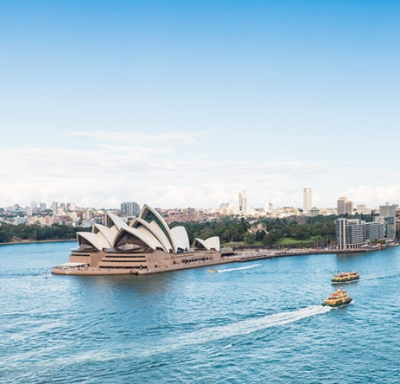We use cookies to give you the best possible online experience. See our cookie policy for more information on how we use cookies and how you can manage them. If you continue to use this website, you are consenting to our policy and for your web browser to receive cookies from our website.
Australia Health Guide
Health insurance in Australia
When you're thinking about moving to Australia, your first concerns are probably about arranging accommodations and finding a job. However, you also need to think about your health. What will happen should you fall ill? It makes sense to think about private health insurance. Australia does have reciprocal health care agreements with certain countries, but these only entitle people to limited care and are not designed for expatriates. Aetna International can help arrange full health insurance in Australia suited to your individual needs, so that you and your family get the best quality treatment, no matter how far you are away from home.
Vaccinations
Travelers who have stayed more than one night (within the previous six days) in a country with a risk of yellow fever will need a certificate of vaccination against yellow fever. Otherwise, there are no necessary vaccinations for travel to Australia, but all travelers should make sure that their tetanus, diphtheria and polio inoculations are up to date. Hepatitis A and Hepatitis B vaccines are also recommended for those in certain risk groups, and inoculation against Japanese Encephalitis (JE) is also recommended if you plan to visit or work in agricultural areas of the Islands of Torres Strait and the Cape York Peninsula.
Health care
Australia has a well-respected universal health care system called Medicare, with more than 1,300 public and private hospitals, including nearly 740 public hospitals providing acute treatment. Australian medical facilities have scored well in international surveys on quality of care, though small hospitals and health care centers in remote regions may not be able to offer a full range of treatments, and there are waiting lists for many elective surgical procedures. A significant number of locals also choose some form of additional medical insurance. Australia currently has around 11 percent of its total national health care budget covered by private funding of this kind, and for those insured it offers a choice of hospitals, clinicians and timings for treatments.
Eight countries — Great Britain, Finland, Ireland, Italy, Malta, the Netherlands, New Zealand and Sweden — have reciprocal health care agreements with Australia, which cover medically necessary treatment for visitors along with subsidized prescriptions for medication required to treat these ailments. Dental treatment, transportation by ambulance and optometry are not covered, and these agreements are designed for short-term visitors and holidaymakers rather than for expatriates. If you are planning to move, an international health insurance policy in Australia is thus strongly recommended.
Political concerns
Australia is a generally safe and democratic country, and expatriates and travelers are unlikely to be at any serious risk. Nonetheless, there are some concerns over terrorist activity, with a number of recent arrests by Australian police forces of suspects on counter-terrorism charges.
Other risks
Australia is home to a significant number of poisonous insects, spiders and snakes, as well as larger dangerous creatures like crocodiles and sharks. The climate can be hot and harsh too — even in the cities — so it's a good idea to ensure you carry water to drink, wear a high factor sunscreen and keep covered up with a hat. Swimmers and surfers should also be aware of strong tides and currents off many beaches, and should remain in supervised areas with lifeguards in attendance.
Australia is prone to seasonal natural disasters including tropical cyclones, flash flooding, dust storms and bushfires. The cyclone season runs from November to April.
Drivers heading to remote rural areas should be aware that there may be limited facilities to buy gas, water or food. Do not tackle unsurfaced roads in an unsuitable vehicle or without appropriate tires, and ensure you take regular rest stops on long-distance journeys. Also be prepared for sudden changes in road conditions.
Crime is on a level similar to that of most developed nations, with thefts, burglaries and assaults a possible risk in certain urban and tourist areas. Valuables should not be left in unattended cars, particularly at tourist attractions which may be targeted.





